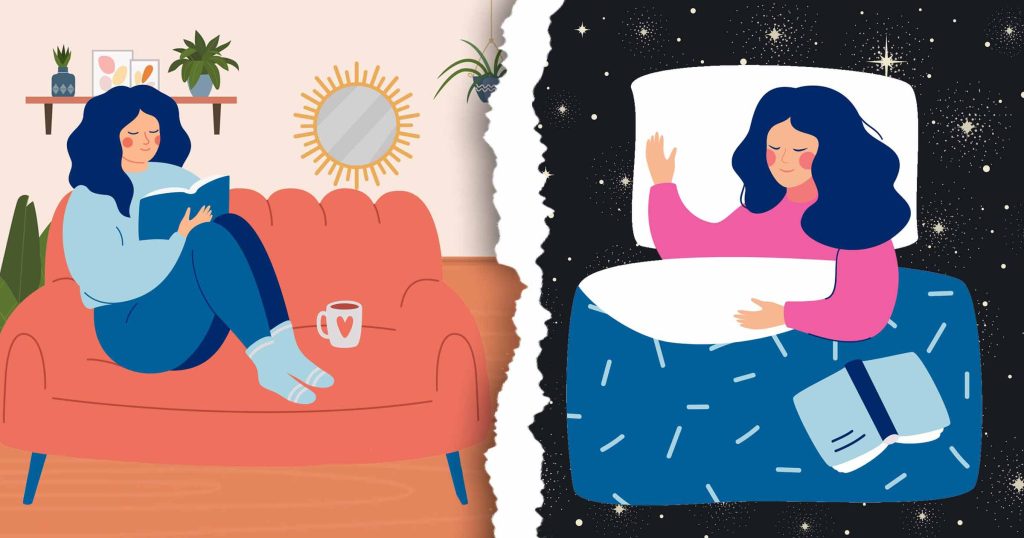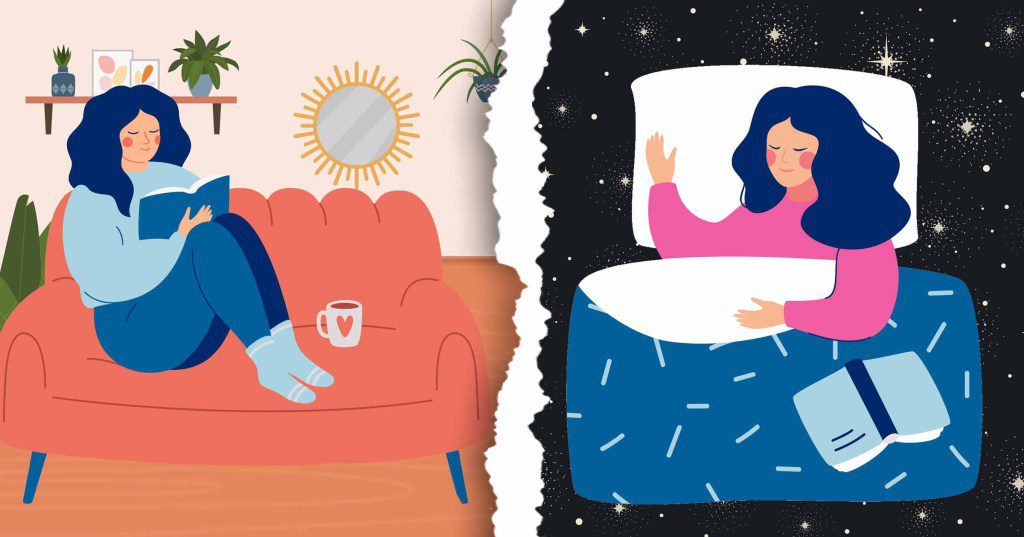Some topics act as society’s great dividers: cream or jam first on a scone, pineapple as a pizza topping, and the true color of 'the dress’.
There’s also the question of whether you’re a living room person or a bedroom person – and the internet has strong opinions.
After Twitter (now X) user Samaria J Davis asked followers, ‘Are y’all living room or bedroom people?’ replies flooded in from both sides.
Instagram influencer Magdalena also asked parents if they spend most of their time together in communal spaces because everyone feels safe, at peace, comfortable and accepted enough to do so.'
On the other hand, children sometimes feel the need to hide away in their rooms as they feel they’re ‘walking on eggshells’ around their relatives.
So while the choice between whether you’re a living room or a bedroom person itself is fairly innocuous, your answer can reveal far more than where in your home you spend the most time.
Childhood
Multiple people replied to Samaria’s post with variations on the theme of, ‘Living room people are people who don’t hate their families’.
‘If you and your siblings used to scatter when you heard your father’s car outside, your answer will be bedroom,’ said one.
BACP Accredited Therapist Caroline Plumer tells Metro.co.uk: 'For some, their bedroom (if they were fortunate enough to not be sharing) may have been the only place where they had any peace or privacy.'
Privacy
While sometimes used an escape from toxicity growing up, many bedroom people see their personal space as an escape from social interaction.
This is often a practical thing, as modern living situations can make being in shared spaces with flatmates you don’t know well somewhat awkward.
‘I feel like you only become a living room person when you live alone,’ said one person on Twitter.
Alternatively, if you live with friends or family, you might love spending time with them and so spend more time in communal areas of the home.
‘With the rise in house shares, many people are finding their bedroom is also their living room and their office; this might lead to them feeling safer there, or conversely, more frustrated,’ explains Caroline.
‘Particularly for those that find being around others draining, it’s important to have a space to escape to. The living room for some means fun and socializing and is what they need to feel connected to others.’
Sleep
Among those on the ‘living room person’ side of the debate, many cited the fact they need their bedroom to be a defined space for sleeping.
‘I need a STRICT delineation between sleep and entertainment,’ commented one person, while another added: ‘I highly advise y’all to make your bedroom – or at least bed – only for sleeping/leisure. You’ll be amazed at how much easier sleep finds you in the evening, when your mind automatically associates your bed with sleep.’
Cleanliness
Alongside the deeper stuff, a propensity to stay in bed could signal you’re not overly bothered about dropping crumbs or general cleanliness; not to say you’re unhygienic, but you're not exactly like Monica Geller either.
One person on Twitter said it 'truly disgusts' them when people eat food in bed, echoing the feelings of GP Dr Aragona Giuseppe who explained that unclean sheets can cause bacteria to accumulate, itchy skin, and even mites.
Yet the occasional 'crust day' spent in your pillow fort can be therapeutic, and while washing your bedding is important, if you're very concerned about germs you may have issues around anxiety or control.
Depression
You may have heard of bed rotting, which basically means spending time in your bed to recharge and do nothing.
It's a popular self-care method among Gen Z, but too much time spent in bed can have the opposite effect – and potentially indicate that you're not in your best mental state.
'If I'm in my bed all day every day, I'm in a depression slump,' said one person in response to Samaria's question. 'It's like my go-to place when I'm feeling really sad.'
Another person added: 'Whenever I'm in my bedroom for a long time, please do a welfare check on me because I am not well.'
Offering advice, a third user said: 'Staying in bed all day can lead to depression. Get out of bed and go stand outside. Touch grass, drink water, and feel the sun on your face. It's extremely healthy.'
Feeling low and staying in bed are not necessarily mutually exclusive; it's more about whether it's a regular thing for you and whether your hibernation helps or harms you personally.
'Ultimately, unless your preference is causing you issues (like spending too much time in your bedroom is causing you to have poor sleep as you no longer associate it with that purpose) then it doesn't matter as long as your home is mostly a place where you feel emotionally safe and settled,' says Caroline.
'If it isn't, the most important thing is to look at why. Is it the people you live with, the space itself or your own anxieties?'
She suggests working towards making your space feel safe as the next step, which may mean removing yourself or changing the environment.
'What can you bring into the space to help you feel more settled – whether visuals, sounds, scents, etc.?' Caroline continues.
'If you feel it may stem from your own anxieties, it is always worth visiting your GP or seeking the help of a professional.'
Do you have a story to share?










